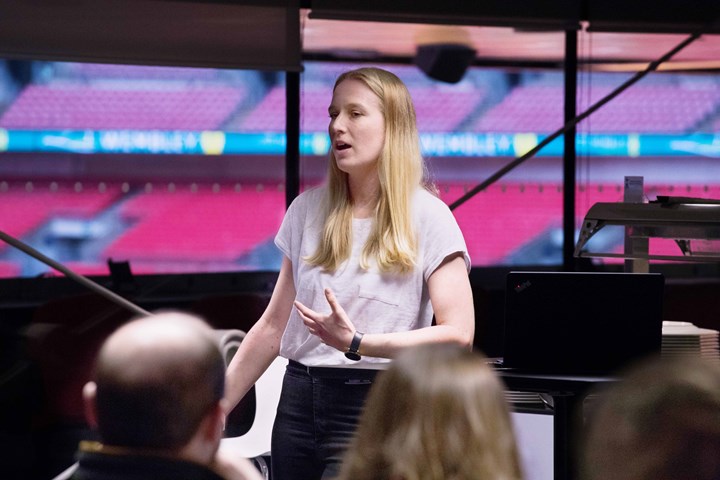A question often asked by students at UCFB Open Days is: ‘How do I become a sports psychologist?’
There may be many different answers to this, and multiple pathways to the profession, but there are practical steps that can be taken that will accelerate your chances of making it in the rapidly expanding industry.
What is sports psychology?
While there are many different components to sports psychology, professionals tend to work in close contact with athletes to ensure that their performance is heightened, rather than hindered, by their mentality. This includes preparing athletes for competition, helping them cope with the pressures and demands of elite sport, and recover from setbacks such as injury.
It also incorporates broader psychological challenges sportspeople may face, including depression and eating disorders. A sport psychologist may be responsible for recognising any behavioural changes in an athlete to help them overcome any suppressed or underlying issues they’re dealing with in order to maximise performance and personal wellbeing.
A separate branch of sports psychology is exercise psychology, where professionals primarily work with the public to instil in them the importance of exercise and health, setting-up initiatives to encourage this within the wider community.
Whether it’s focussing specifically on individuals or overlooking larger social groups, sports psychologists are able to positively impact those they work with.
Why choose to work in sports psychology?

Working as a sports psychologist can be extremely challenging, but with this comes many incredible rewards. The role typically involves interacting with a range of people across a range of sports, and allows you to build close relationships with athletes in order to work as effectively as possible with them.
While you may have to work with athletes during low points in their careers, the process of helping them re-gain sporting and personal success can be very rewarding, and is often cited as the highlight of the job. By ensuring that athletes are mentally, as well as physically, optimising performance, sports psychologists play a vital role in helping sportsmen and women reach their full potential.
Additionally, the field of sports psychology is advancing considerably in today’s society. As the importance of mental health continues to grow, particularly in light of the global pandemic, the discipline is increasingly recognised as an integral aspect of athletic performance.
What qualifications do I need?
In order to become a fully qualified sports psychologist, you will need to complete an undergraduate or Bachelor’s degree in a relevant subject, ideally sports psychology. This will equip you with the skill set to go on to pursue a variety of avenues within the field.
Following on from your sports degree, you will have the option to undertake further sports psychology qualifications to specialise in certain areas and enhance your employability prospects.
It is not possible to become a sports psychologist with the British Psychological Society (BPS) and the British Association of Sport and Exercise (BASEs) without a degree.
Career paths in sports psychology
From coaching elite athletes to analysing wider trends within the industry, there are a vast range of careers in the sports psychology sector. The skills acquired within a sports psychology degree enable graduates to pursue a range of jobs, including, but not limited to, a sports coach, physical health specialist and, of course, a full-time practitioner as a sports psychologist for a variety of ages and abilities.
Both public and private organisations are available, and sports psychologists also have the option to work independently, building their own network of contacts within the industry. Exercise psychologists typically work for the NHS or private healthcare centres.
Alternatively, there are other career paths where these skills and qualifications are useful and highly regarded. Many qualified sports psychologists go on to become teachers, psychologists in other fields, consultants and several other varied roles.

















